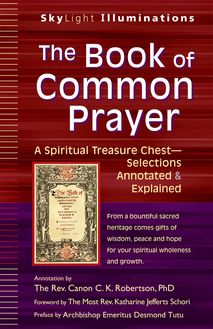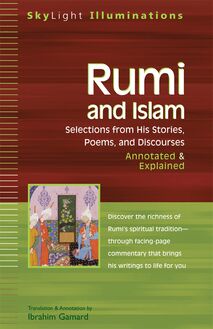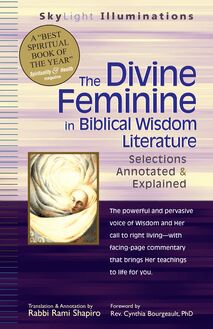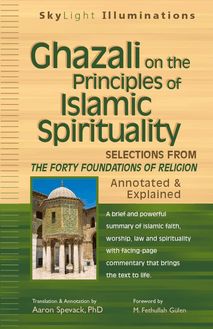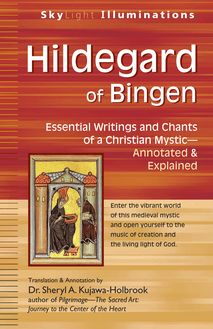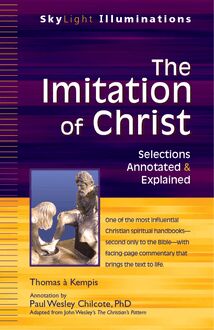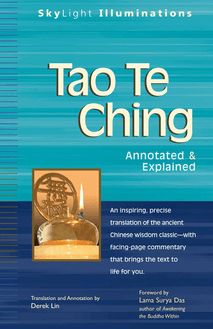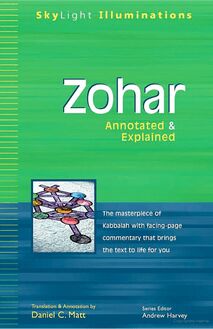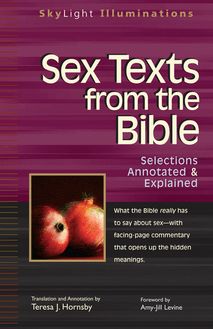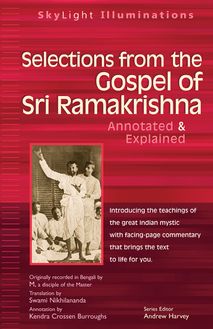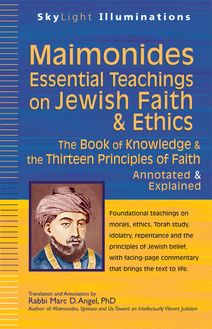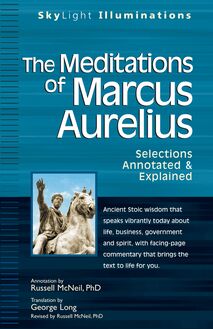The Secret Book of John , livre ebook
114
pages
English
Ebooks
2012
Vous pourrez modifier la taille du texte de cet ouvrage
Obtenez un accès à la bibliothèque pour le consulter en ligne En savoir plus
Découvre YouScribe et accède à tout notre catalogue !
Découvre YouScribe et accède à tout notre catalogue !
114
pages
English
Ebooks
2012
Vous pourrez modifier la taille du texte de cet ouvrage
Obtenez un accès à la bibliothèque pour le consulter en ligne En savoir plus
Publié par
Date de parution
14 décembre 2012
Nombre de lectures
3
EAN13
9781594733680
Langue
English
This ancient Gnostic text can be a companion for your own spiritual quest
The Secret Book of John is the most significant and influential text of the ancient Gnostic religion. Part of the library of books found in Nag Hammadi, Egypt, in 1945, this central myth of Gnosticism tells the story of how God fell from perfect Oneness to imprisonment in the material world, and how by knowing our divine nature and our divine origins—that we are one with God—we reverse God’s descent and find our salvation.
The Secret Book of John: The Gnostic Gospel—Annotated & Explained decodes the principal themes, historical foundation, and spiritual contexts of this challenging yet fundamental Gnostic teaching. Drawing connections to Christianity, Buddhism, Hinduism, kabbalistic Judaism, and Sufism, Davies focuses on the mythology and psychology of the Gnostic religious quest. He illuminates the Gnostics’ ardent call for self-awareness and introspection, and the empowering message that divine wholeness will be restored not by worshiping false gods in an illusory material world but by our recognition of the inherent divinity within ourselves.
Now you can experience and understand this foundational teaching even if you have no previous knowledge of Gnosticism. This SkyLight Illuminations edition presents the most important and valued book in Gnostic religion with insightful yet unobtrusive commentary. It provides deeper insight into the understanding that in Gnosticism the distinction between savior and saved ceases to exist—you must save yourself and in doing so save God.
Publié par
Date de parution
14 décembre 2012
EAN13
9781594733680
Langue
English
Selected Books in the SkyLight Illuminations Series
The Art of War-Spirituality for Conflict: Annotated & Explained
Bhagavad Gita: Annotated & Explained
The Book of Mormon: Selections Annotated & Explained
Celtic Christian Spirituality: Essential Writings-Annotated & Explained
Chuang-tzu: The Tao of Perfect Happiness-Selections Annotated & Explained
Confucius, the Analects : The Path of the Sage-Selections Annotated & Explained
Dhammapada: Annotated & Explained
The Divine Feminine in Biblical Wisdom Literature: Selections Annotated & Explained
Ecclesiastes: Annotated & Explained
The End of Days: Essential Selections from Apocalyptic Texts-Annotated & Explained
Ethics of the Sages: Pirke Avot -Annotated & Explained,
Ghazali on the Principles of Islamic Spirituality: Selections from Forty Foundations of Religion -Annotated & Explained
Gnostic Writings on the Soul: Annotated & Explained
The Gospel of Philip: Annotated & Explained
The Gospel of Thomas: Annotated & Explained
Hasidic Tales: Annotated & Explained
The Hebrew Prophets: Selections Annotated & Explained
The Hidden Gospel of Matthew: Annotated & Explained
The Infancy Gospels of Jesus: Apocryphal Tales from the Childhoods of Mary and Jesus-Annotated & Explained
John and Charles Wesley: Selections from Their Writings and Hymns-Annotated & Explained
The Lost Sayings of Jesus: Teachings from Ancient Christian, Jewish, Gnostic, and Islamic Sources-Annotated & Explained
Maimonides-Essential Teachings On Jewish Faith and Ethics: The Book of Knowledge and the Thirteen Principles of Faith-Annotated & Explained
The Meditations of Marcus Aurelius: Selections Annotated & Explained
Native American Stories of the Sacred: Annotated & Explained
Philokalia: The Eastern Christian Spiritual Texts-Annotated & Explained
Proverbs: Annotated & Explained
The Qur an and Sayings of Prophet Muhammad: Selections Annotated & Explained
Rumi and Islam: Selections from His Stories, Poems, and Discourses-Annotated & Explained
The Sacred Writings of Paul: Selections Annotated & Explained
Saint Augustine of Hippo: Selections from Confessions and Other Essential Writings-Annotated & Explained
The Secret Book of John: The Gnostic Gospel-Annotated & Explained
Selections from the Gospel of Sri Ramakrishna: Annotated & Explained
Sex Texts from the Bible: Selections Annotated & Explained
Spiritual Writings on Mary: Annotated & Explained
St. Ignatius Loyola-The Spiritual Writings: Selections Annotated & Explained
Tanya , the Masterpiece of Hasidic Wisdom: Selections Annotated & Explained
Tao Te Ching: Annotated & Explained
The Way of a Pilgrim: The Jesus Prayer Journey-Annotated & Explained
Zohar: Annotated & Explained
The Secret Book of John: The Gnostic Gospel Annotated & Explained
2005 First Printing
Translation, annotation, and introductory material 2005 by Stevan Davies
All rights reserved. No part of this book may be reproduced or transmitted in any form or by any means, electronic or mechanical, including photocopying, recording, or by any information storage and retrieval system, without permission in writing from the publisher.
For information regarding permission to reprint material from this book, please mail or fax your request in writing to SkyLight Paths Publishing, Permissions Department, at the address / fax number listed below, or e-mail your request to permission@skylightpaths.com.
Library of Congress Cataloging-in-Publication Data Davies, Stevan L., 1948- The secret book of John : the Gnostic Gospel annotated & explained / translation & annotation by Stevan Davies. p. cm.-(SkyLight illuminations series) Includes bibliographical references. ISBN 1-59473-082-2 1. Apocryphon of John-Commentaries. I. Apocryphon of John. English. 2005. II. Title. III. Series: SkyLight illuminations. BT1392.A752D38 2005 229'.94-dc22
2004024400
10 9 8 7 6 5 4 3 2 1
Manufactured in the United States of America
Cover Design: Walter C. Bumford III, Stockton, Massachusetts
Cover Art: Plate 3, The First Book of Urizen copy A, William Blake (1794). The Urizen poem is a narrative about the origins of the universe that closely parallels the Secret Book of John. In Blake s poem, the god Urizen separates himself from his fellow gods and creates self-consciousness. Urizen s fall into himself marks the creation of the universe and leads to his imprisonment in the material world.
SkyLight Paths Publishing is creating a place where people of different spiritual traditions come together for challenge and inspiration, a place where we can help each other understand the mystery that lies at the heart of our existence.
SkyLight Paths sees both believers and seekers as a community that increasingly transcends traditional boundaries of religion and denomination-people wanting to learn from each other, walking together, finding the way .
SkyLight Paths, Walking Together, Finding the Way, and colophon are trademarks of LongHill Partners, Inc., registered in the U.S. Patent and Trademark Office.
Walking Together, Finding the Way ® Published by SkyLight Paths Publishing A Division of LongHill Partners, Inc. Sunset Farm Offices, Route 4, P.O. Box 237 Woodstock, VT 05091 Tel: (802) 457-4000 Fax: (802) 457-4004 www.skylightpaths.com
Contents
Preface
Introduction
Timeline
Title
Prologue
1. The Inexpressible One
2. The Origin of Reality
3. Primary Structures of the Divine Mind
4. Secondary Structures of the Divine Mind
5. Tertiary Structures of the Divine Mind
6. A Crisis That Became the World
7. The Fashioning of This World
8. Sophia Repents
9. Humanity Begins
10. The Construction of the Human Body
11. Yaldabaoth Deceived
12. The Beginning of Salvation
13. Adam in Yaldabaoth s Paradise
14. Woman Comes into Being
15. The Children of Seth Populate the World
16. Six Questions about the Soul
17. Three Plots against Humanity
18. The Providence Hymn
Conclusion
Notes
Suggestions for Further Reading
About SkyLight Paths
Copyright
Preface
Perhaps you are one of those remarkable people who experience an overpowering realization of the divinity of existence. You suddenly know that everything is divine and that within you lies an ocean of God. Will you know this all of the time and every day? No. You will crest and fall and submerge again into the mundane. The realization of divinity as the be-all and end-all, as the substance of your very self-that within which you live and move and have your being-does not dominate every day, although you wish it would. The ordinary world of aches and pains and approaching death, of trouble, temptation, sin, stress, and loss seems to rule almost all the time. And yet, sometimes you can seize what you seek and see glory everywhere and know yourself to be divine.
If you are one of those people, you are one with the Gnostics. You know what you truly are, that you are God, just as everyone else is. But, as a Gnostic, your existence in this ordinary and difficult world puzzles you. You ask, How did I come to be here? You don t seem to belong here. You belong in a world, a realm, of divinity. And it certainly seems that that divine realm is not everyday reality. But if, in full reality, everything that exists is God, why don t we always know this? Why do some people never even think it possible to be what, in their depths, they really are? Why don t we know who we are? How did we come to forget? What holds us back from perpetual realization of our divinity and what traps so many people into denying that their own divinity is even conceivable? These are the Gnostics questions. The Secret Book of John is the Gnostics answer.
Gnostics know that God is all and that they themselves are God. They experience this knowledge, this realization, and know that everyone else could share their experience. But they are continually thrown back into the seemingly hard material reality that tells them that they are merely flawed humans, kin to apes, doomed to die, ruled by a judgmental creator god who often does not show a fondness for people at all. Gnostics rebel against their churches and their priests, their Bible-based pastors whose obsession with God s supposed desire to control behavior seems not to be what true religion is about. To Gnostics, true religion, elite spirituality, is a realization of the divinity of every person, an experience of ascent to the divine homeland. It is a knowledge of the way we once were as God and of the processes by which God came to be so self-forgetful as to become us, mere human beings under the control of another lesser god. Those are the lessons taught in the Gnostic Gospel, the Secret Book of John.
Gnosticism is a religion of rebels: creative thinkers whose works were systematically destroyed by orthodox Christianity between the second and the sixth centuries CE. Gnostics were the other to the growth of orthodoxy; they lived in the home of heresy for they were the source of self-assertiveness against the episcopal demand for sameness. They persisted in the shadows, in certain Sufi sects, in the Christian Cathar movement, and perhaps even among the Knights Templar and the Rosicrucian orders. Only recently have the old Gnostics spoken aloud again. Their speech resounds in the documents of the Nag Hammadi Library buried seventeen hundred years ago in Upper Egypt, discovered again in 1945, and read today by spiritual seekers throughout the world. Their main document, their central myth, their theory of the origin and structure of reality is a text called the Secret Book of John. In this text we learn how God fell and became us and how, through knowing that story, we can return to glory and be absorbed again into God. This new annotated edition of the Secret Book of John will help you take up the challenge of reading the primary Gnostic myth. It discusses the principal themes of the Secret Book of John and explains the historical and spir

